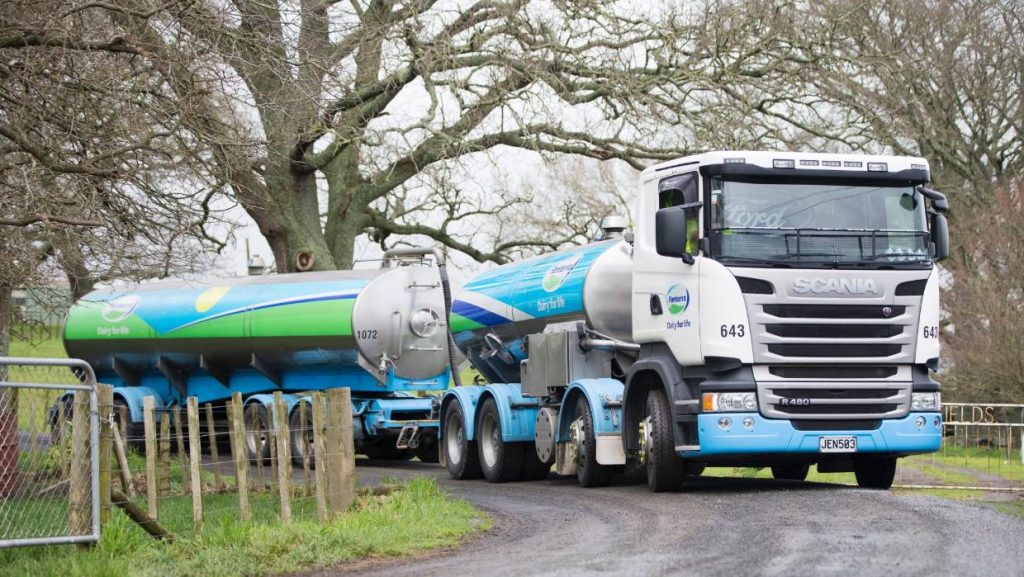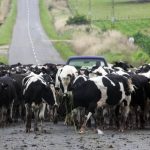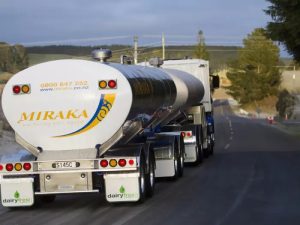
Fonterra shouldn’t have to collect milk from anyone who wants to supply it, the dairy co-op says.
Under current law Fonterra must accept milk from shareholding farmers in its collection area.
However, in a 66-page submission on a review of the Dairy Industry Restructuring Act (DIRA), it called for an end to the “open entry” rule.
Failing that, the co-operative said it would support the removal of open entry in regions where its market share dropped below 75 per cent, as well as for new conversions and applications it felt were unlikely to meet its terms of supply.
That would mean it would not be obliged to collect milk from the likes of new dairy conversions in the Mackenzie Basin, which it has publicly opposed.
Fonterra said open entry had helped build New Zealand’s “vibrant and competitive” dairy sector but was no longer being relied on as it once might have been.
It also had several downsides, particularly for the environment, and sustainability more generally, and the risk of industry-wide over-capacity which could lead to lower returns, it said.
“This could result in a long period of stagnation in the sector – as we have seen with the red meat processing industry.
“Eventually players might capitulate and close plants. While this would “fix” the over-capacity problem, it would itself have serious negative consequences for the individuals and communities affected,” Fonterra said.
In a covering letter, chief executive Miles Hurrell said DIRA had been critical to the performance of the New Zealand dairy sector since it became law in 2001.
In the last 17 years, dairy exports had grown from $6.3 billion to $17.1b, he said.
“The legislation has achieved what it set out to – create competition. Farmers now have choices in who they supply their milk to and New Zealand consumers have many choices when purchasing dairy products,” Hurrell said.
“Our co-operative wants an industry that promotes investment in regional New Zealand and where profits are kept at home for the benefit of all New Zealanders.”
In its current form DIRA provides large dairy processors with access to regulated milk from Fonterra, while they establish own supply.
However, the co-op said it was no longer necessary to provide milk to larger export-focused processors who were capable of sustaining their own supply.
While it supported the status quo for Goodman Fielder and smaller processors, it opposed milk being given, “effectively at cost, to new processors who are focused on exporting their products”, it said.
Fonterra’s submission on the DIRA review was one of 188 received by the Ministry for Primary Industries (MPI) which would review them and develop policy recommendations for the Government.
The Government would then decide whether any law changes should be made as a result of the review.
























